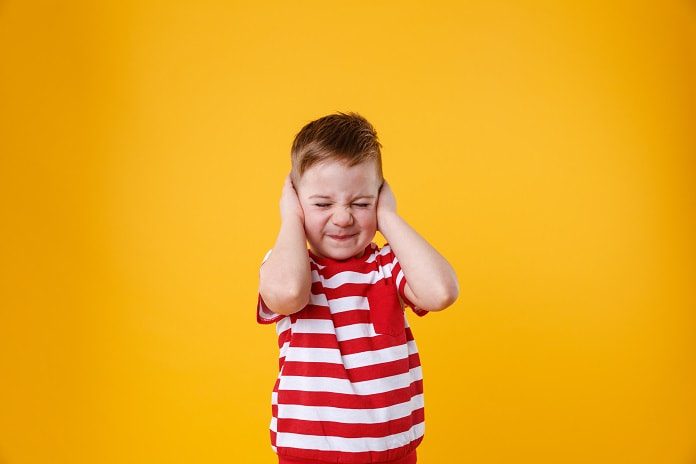Researchers examine the effects of childhood mild-to-moderate hearing loss on the development of the central auditory system.
The human brain processes sound through the central auditory system, a set of cortical structures that recognize and give meaning to auditory stimuli. The development of the central auditory system occurs during childhood. The auditory experience during this critical period has implications on the structure and function of the auditory pathway in the adult brain. While congenital deafness, or the deprivation of sound from birth, is associated with the degeneration of neuronal auditory structures, a recent study has shown that even mild-to-moderate hearing loss can have lasting consequences on the brain.
Researchers from the University of Cambridge considered the question of how mild-to-moderate hearing loss affects the development of the central auditory pathway in children. They recruited 46 children diagnosed with permanent mild-to-moderate hearing loss and 44 age-matched controls with normal hearing. To assess neural processing of sounds, the authors measured electrical brain activity in response to various speech and non-speech stimuli. The subjects were split into younger (8-11 years) and older (12-16 years) age groups to evaluate the effect of mild-to-moderate hearing loss during adolescence.
The findings, published in the journal, eLife, revealed that the younger children with hearing loss showed similar brain responses to normally hearing children, however, the older children with hearing loss demonstrated smaller brain responses than age-matched controls. To confirm the age-related effect, the researchers re-tested a subset of the younger children after six years. Although there was no evidence that hearing loss had worsened with age, the childrens’ brain responses to auditory stimuli became reduced or absent. These results suggest that mild-to-moderate hearing loss during childhood induces functional changes in the auditory cortex that only emerge during adolescence.
According to Axelle Calcus, lead author of the paper, “We know that children’s brains develop in response to exposure to sounds, so it should not be too surprising that even mild-to-moderate levels of hearing loss can lead to changes in the brain. However, this does suggest that we need to identify these problems at an earlier stage than is currently the case.”
The work may have implications on childhood hearing screening programs, which are currently not sensitive enough to detect milder stages of hearing loss.
“Children with hearing problems tend to do less well than their peers in terms of language development and academic performance,” said Lorna Halliday, senior author of the paper. “Detecting even mild degrees of hearing impairment earlier could lead to earlier intervention that would limit these brain changes, and improve children’s chances of developing normal language.”
Written by Cheryl Xia, HBMSc
References:
- Craig Brierley. Mild-to-moderate hearing loss in children leads to changes in how brain processes sound. EurekAlert! (2019).
- Calcus, A., Tuomainen, O., Campos, A., Rosen, S. & Halliday, L. F. Functional brain alterations following mild-to-moderate sensorineural hearing loss in children. eLife 8, e46965 (2019).



